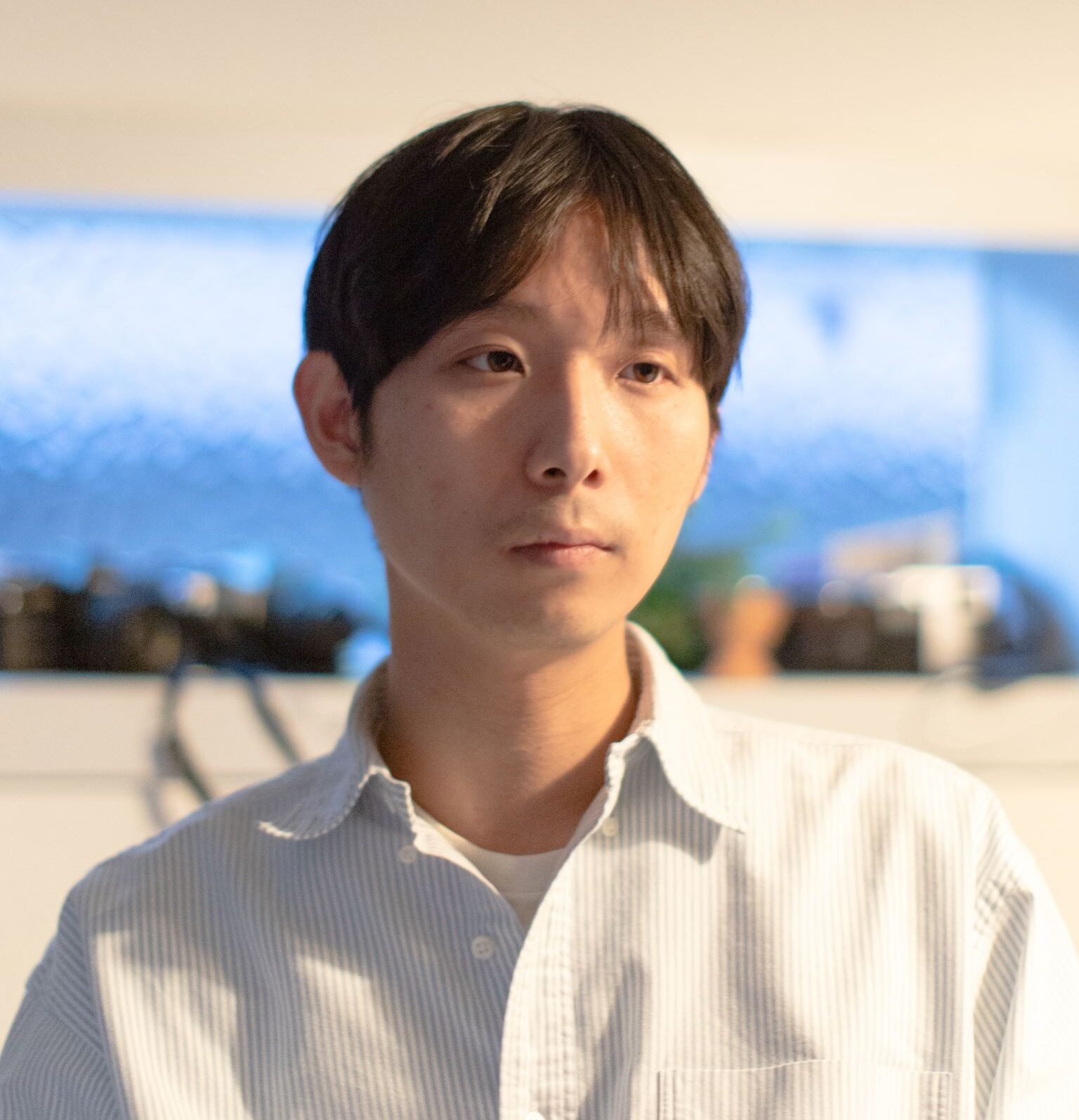“How do you translate the millennia of language and centuries of culture, of hiding, of brushing under the rug, of diminishing, dehumanizing, destroying?”
Gongmin’s translations of Gye Mihyun’s poems “The Fall of the Hyuns (泫),” “Seungeun’s Hello,” and “Baby and Dildo” appeared in NER 45.2 as part of the special folio “Where On Earth Did You Come From?”—Seven South Korean Poets & Their Translators, guest edited by Soje.
I first read Gye Mihyun’s poem “Seungeun’s Hello” at a café. Those days, we used to frequent a café by the stream for coffee and iced tea and scurry over to a sandwich place nearby for a late lunch. Mihyun was working on a book of poetry, a forty-odd collection that was divided into three parts, each telling a cohesive story based on a specific animal. Seungeun was an ant, or Part 1. They were fierce, angry, funny, depressed, queer, ant. Seungeun was unafraid to speak their mind, laugh in the face of adversity, or appropriate the means of oppression. They were a true rebel, the voices of Diane di Prima, Valerie Solanas, and a slew of others we had read extensively over that summer.
Mihyun aspired to be them.
Mihyun aspired to be Seungeun. Or they aspired to be ant. An ant that is forced to abide by strict social hierarchy and rules and is sick of it. An ant that is often overlooked until it poses a threat to people. An ant that is looking for a new family to burrow with. Maybe she already was one.
Reading the poem, I was instantly made conscious of my surroundings. In it, Seungeun uses certain words of hatred, words so vulgar, so strong, so tightly bound with a specific kind of mentality that it makes me uncomfortable to read them in open spaces. The dread of having to face these words was with me as I translated the poem. It is with me now as I type this at the airport.
And how do you translate hatred? How do you translate hatred in a world that is constantly coming up with new ways to hate? For the next several weeks, I was stuck between a literal translation that evoked the same imagery or one that evoked the same abhorrence. I knew that the latter half of the word should be “-bug” and not “-roach” (which is what one famous translator had opted for when coming up with the word “mum-roach”) because it had to have the same cadence of the poem, not to mention the poem was written in the perspective of another specific insect. But what of the first half? After much consideration, I decided that the translated word had to carry the same weight as its source, meaning that it had to elicit the same level of fear when it was on a screen or page. Instead of butthole-bug or the more esoteric anus-lover-bug, I went with faggot-bug.
Another decision I had to make was regarding gender and pronouns. In Korean, the gender-neutral pronoun is often used, masking the sex and gender of the subject. The subject and object can even be entirely omitted from the sentence structure. In English, subjects are obligatory, pronouns less so but still essential and very much binary. With Gye Mihyun’s poetry, the answer seemed so obvious. Instead of playing God, I was going to use a gender-neutral pronoun similar to the source and let the readers decide. Besides, gender and pronouns felt like crude human constructs that did not seem appropriate for ants. Needless to say, I chose to go with they/them for all of them.
Translating is the art of asking yourself questions and trying to come up with arbitrary reasons to justify your arbitrary decisions. How do you translate the human-coded, gender-coded, group-coded, and homogeneity-coded language to one that is governed by a different set of codes? How do you translate the millennia of language and centuries of culture, of hiding, of brushing under the rug, of diminishing, dehumanizing, destroying? How do you impose the rules set by one culture and language on another?
More importantly, how do you translate this one word?
No wonder translators are so confused about everything.
Gongmin is a novelist, translator, and activist for animal rights and climate justice. They translate both literature and video games, and recently translated Gye Mihyun’s web poetry collection, The Fall of the Hyuns. Gongmin’s writing focuses on language, anti-speciesism, and nonhuman entities, and they made their literary debut by publishing the short story “Nose” in Consonants and Vowels. They are also one of the founding members of Extinction Rebellion Korea and are currently a member of the Ant and Bee Collective.
Photo of Gongmin courtesy of Hankyung Ryu.
